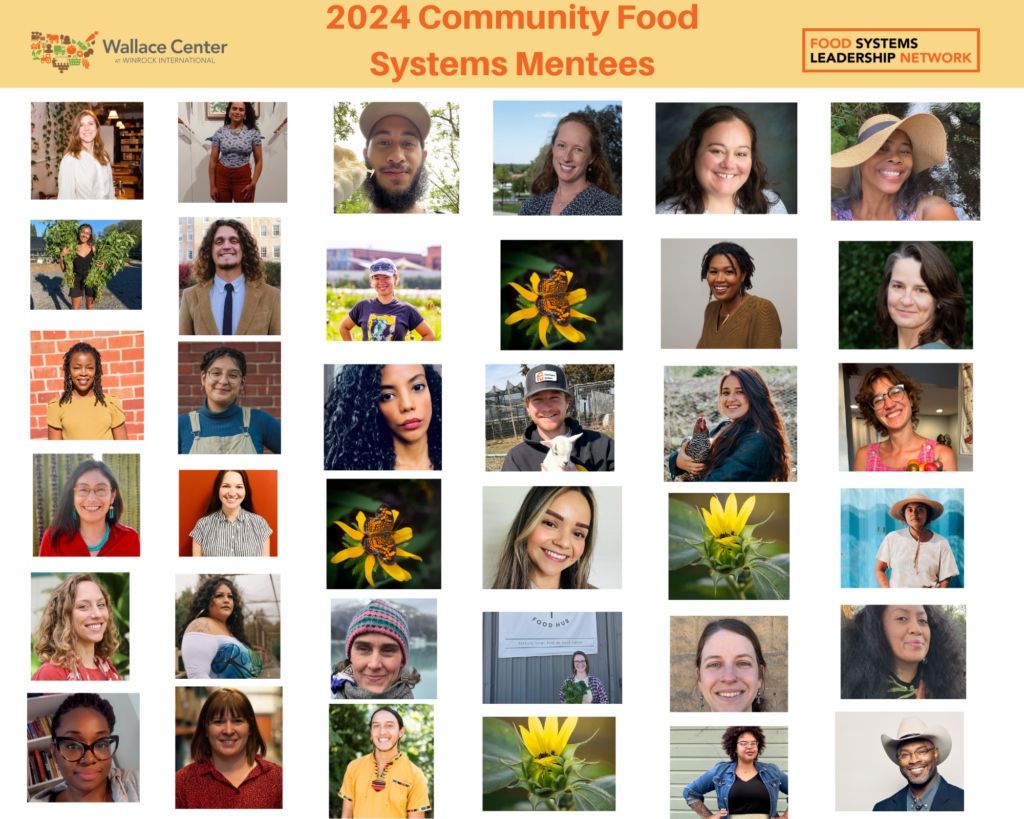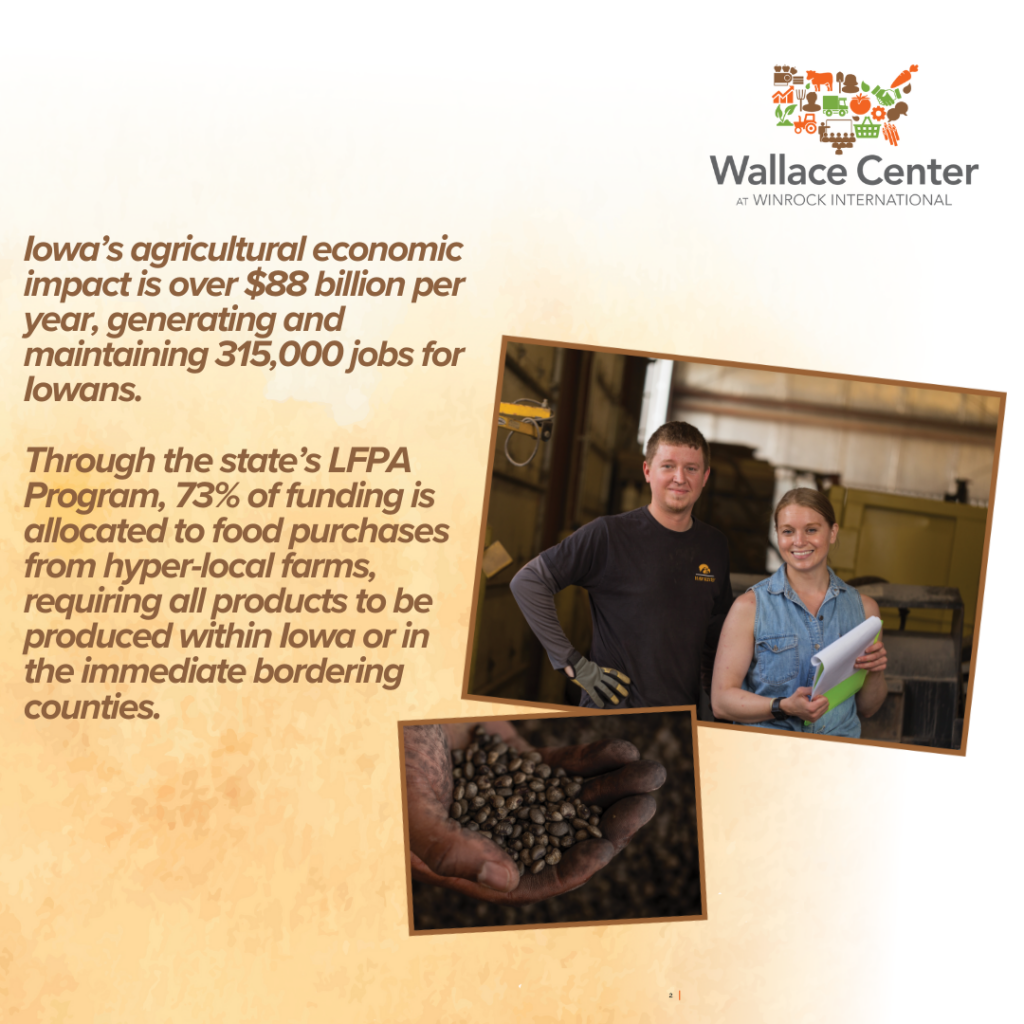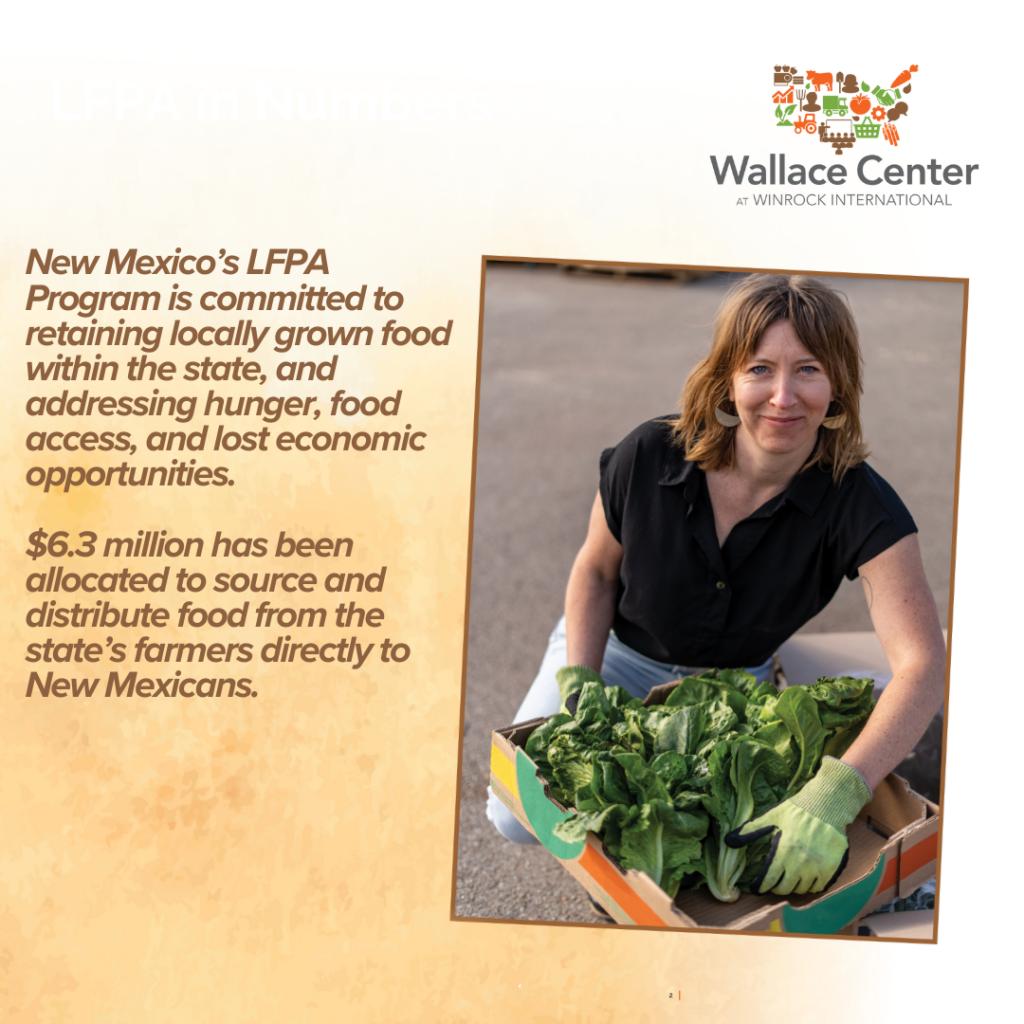
March 28, 2024 — We’re thrilled to share some highlights of our work in this first quarter of the year as we support organizations that receive federal dollars (specifically from USDA and EPA) to implement programs in their communities that–above all–champion equity. Additionally, we’re connecting seasoned food systems leaders with a brilliant cohort of emerging ones to promote intergenerational knowledge exchange and more.
Within this update:
As always, thank you for your support and please reach out if you want to learn more about these initiatives.
Announcing the participating organizations in the Wallace Center’s Farmer Conservation Leader Subaward program
The Wallace Center is excited to announce the nine recipients of its Farmer Conservation Leader Subaward Program, funded by the Environmental Protection Agency’s Gulf of Mexico Divsion (EPA-GMD).
The nine participating subawardee organizations and Tribal nations are:
All projects are intended to improve the health of the Mississippi River and Gulf of Mexico. The nine innovative, community-based projects being implemented include:
This subaward program addresses the needs of historically underserved farming communities in the Mississippi River Region. In its role as a program administrator, the Wallace Center team created a multi-phase project development process, allowing for more equitable proposal deadlines and encouraging relationship-building. Applicants who completed the initial concept note phase and were selected to move forward with a full project were financially compensated for their efforts.
This process was co-designed with four external advisors who are experts in sustainable agriculture and food systems, namely in service of underserved farmers. This advisory group is diverse in race/ethnicity, gender, geography, and networks, informing this subaward program from design to completion.
Advisor Brennan Washington of Phoenix Gardens in Lawrenceville, Ga., said the program, “builds relationships among a powerful network of organizations across the Mississippi River Basin.” He added, “The community organizations funded through this program are at the forefront of environmental issues in their respective communities; they deserve this EPA-GMD funding and additional support beyond this program.”
The Wallace Center is supporting each subawardee organization in their program evaluation efforts, connecting subawardees with advisory support, and facilitating learning across the cohort of organizations.
We’re excited to see how each project progresses and will keep you up to date on our project page and in future newsletters!
Interested in learning more about the important work these organizations are leading in their communities? Connect with them! Subscribe to their newsletters and follow them on social media.
Announcing the 2024 Community Food Systems Mentorship mentees
The Wallace Center’s Food Systems Leadership Network (FSLN) is thrilled to announce the 2024 cohort of its Community Food Systems Mentorship Program!
Now in its 7th year, the program provides burgeoning food systems leaders opportunities to nourish relationships with–and receive guidance from–mentors who offer decades of lived experience.
By investing in these relationships, FSLN is facilitating the flow of intergenerational knowledge, ideas, and resources necessary to support local communities in building equitable and resilient food ecologies.
Thanks to financial support from the USDA’s Center for Faith-Based and Neighborhood Partnerships and the W.K. Kellogg Foundation, this is the FSLN’s largest cohort to date, with over half of the mentees identifying as Black, Indigenous, and People of Color (BIPOC).
Thirty-six mentees from 22 states will work with a dozen mentors between March and June. We’re honored to have the following five new mentors join the program:
Mentees will work with mentors on a broad spectrum of food systems work, including establishing food policy councils, developing strategic plans, and learning how the land and soil can teach us about justice.
Get to know the mentees here!

Local Food Purchase Assistance Cooperative Agreement Program (LFPA) underway across the nation
Since 2020, there has been a significant increase in the number of programs focused on strengthening small farm viability while increasing food security. One such program, USDA’s Local Food Purchase Assistance Cooperative Agreement Program (LFPA) has the potential to transform how the country procures food for those who need it most. The purpose of this $900 million investment is to maintain and improve food and agricultural supply chain resiliency. The Wallace Center’s preliminary research demonstrated the positive effects these “farm to food assistance” programs have on farmers and communities.
LFPA is a transformative initiative that allows state agencies, Tribal governments, and community partners to collaboratively source and distribute food, with the aim of benefiting low-income communities. The program establishes new partnerships between state agencies and Tribal governments, food distribution agencies (such as food banks and food pantries), and farmers, while helping to build and expand economic opportunity for local and historically underserved food producers.
To support the success of the LFPA program, the Wallace Center is conducting research, providing technical assistance, and convening a national Farm to Food Assistance Community of Practice to amplify what we’re hearing from organizations implementing these LFPA programs.


Iowa and New Mexico are two states that are doing a remarkable job in creating equity-centered LFPA programs; check out their spotlight stories here.
In the first year of implementation, farmers in these two states generated $4 million in new sales, while providing nutritious and locally grown food for their communities.
Over the coming months, the Wallace Center will release eight more “LFPA Spotlight stories” that show how other states are implementing LFPA programs.
If you have questions and want to learn more about this program, reach out to Susan Lightfoot Schempf, Wallace Center’s Co-Director.
Keep up with monthly project updates through the Food Systems Leadership Network Catalyst, Regenerative Ag Idea Network Digest, or Pasture Project newsletter!